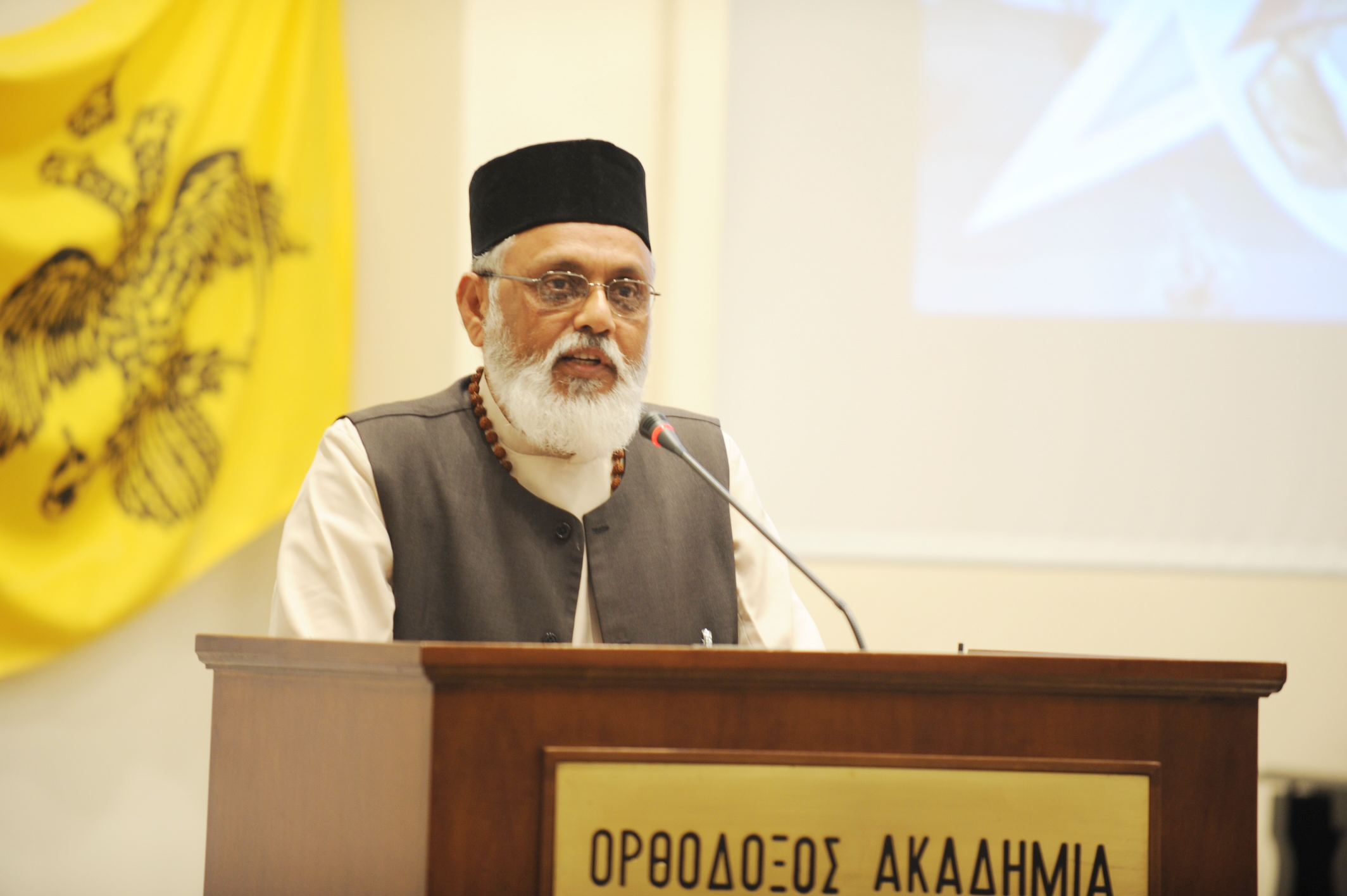
‘Bless and be Blessed’ – Fr Dr K M George
MOTV– September 2016 – Fr Dr K M George
As we observe and celebrate the Time of Creation we need to reflect further on blessing God’s creation as well as receiving blessing in return from God’s creation. Several of us here are priests and pastors, and we know well the routine “job” of blessing the congregation. In my country, probably as elsewhere, we are required to bless not only people, but cattle andcars, stonesand notebooks, pens and pendants, machines and medicines, trucks and motor bikes, and occasionally elephants too (better to be blessed from a safe distance!). So we heartily bless human beings, plants and animals, vehicles and instruments,both animate beings and inanimate objects. In short we bless the whole creation.
Let me humbly and gratefully admit that with years of liturgical experience as a priest, my right hand involuntarily rises up in a discreet gesture of blessing whenever I see great mountains, vast oceans, meandering rivers or any amazing scenes of stunning beauty in nature. It is the same with human beings in all humble conditions and animals, birds and plants…
We, however, are not very much aware of the blessing that we receive from God’s creation in return. In fact, we should consider that everyone or everything that we bless proffers a blessing on us too. The universe is so inter-bonded, and penetrated by the dynamic Creator Spirit that there never happens a one way action. Perhaps, God’s gracious love doesn’t always follow some God-given natural laws as discovered by Newton and set forth in the formula of “equal and opposite reaction” since, according to Jesus, ‘God makes the sun shine on the both the just and the unjust, and sends the rain on the righteous and the wicked alike’.The law of love transcends infinitely the normal laws of our physical existence.
In fact , God has endowed the creation with far more generosity and hospitality to us human beings than we ever can imagine. The air and the water, the sun, the soil and the space are the supreme gifts that Nature confers on us and all living beings in order that we simply live.Just contemplate the very breathing that we do uninterruptedly and unconsciously from the very moment of our birth until death. Normally we become aware of it only when there is some obstruction that deprives us of the oxygenated air. The yogic exercises all begin with the deliberate awareness and the eventual control of one’s breathing (pranayama). A thankful awareness of it on our part (in a truly Eucharistic sense) can change our whole attitude to God’s creation. Our act of blessing the five elements and the whole universe will appear as infinitesimally small, though not insignificant, when we consider the magnitude of blessings that we receive every moment.This instills in us a deeper humility in our attitude to thenatural environment. At first we may not be very much aware of the blessingsthat we receive, but we can certainly cultivate the sensitivity by regular exercises.
Everyone can devise his or her own method of spiritual exercise in order to nourish the sense of beauty and blessing inherent in nature. Slow, meditative and solitary walks in open nature is one of the tested ways. One may, for instance, walk around one’sresidence at the break of the day when everything is deeply quiet. One may touch the trees and plants with a gentle stroke in an act of blessing, and then remain there for some moments feeling the energy of the vegetation flow into us. We may bless particularly the buds and flowers like when we bless the infants and kiss their hands (as a priest may do in a baptismal rite). The tenderness that we experience is the hope of new life , the tender mercy of the Creator that flows into the body of all that is created. Opening fully one’s heart and body to this compassionate love of God that keeps creation in an ordered whole of amazing beauty is to regain partly the blessing of Adam and Eve in Paradise.
Practically one doesn’t need to be in comfortable natural surroundings to do this exercise. We may do it anywhere anytime even in the most bare conditions with some sense of the space and time that envelop us. A little blade of grass, a humble lily of the field, a tiny sparrow can help us begin.
(Prepared for a meditation at the chapel of the Bossey Institute, Geneva, by Fr K M George on the occasion of the meeting of the Joint Working Group between the Roman Catholic Church and the World Council of Churches, 13 September 2016)

